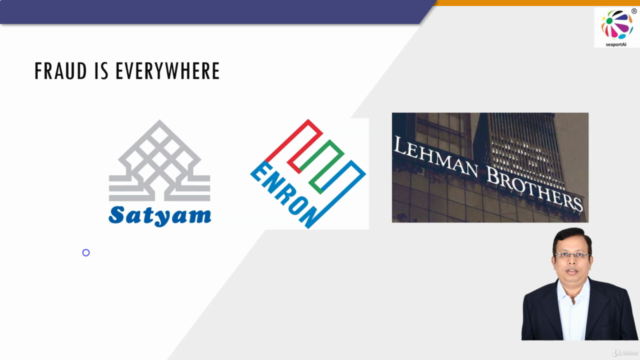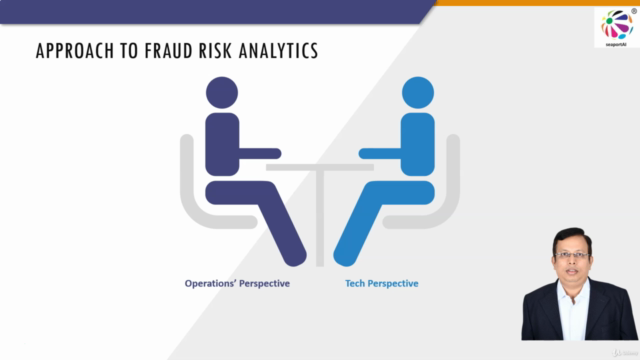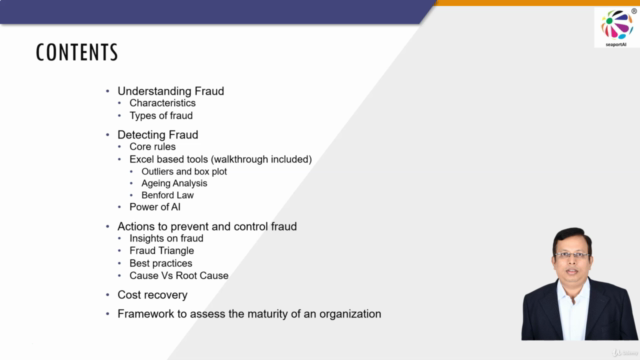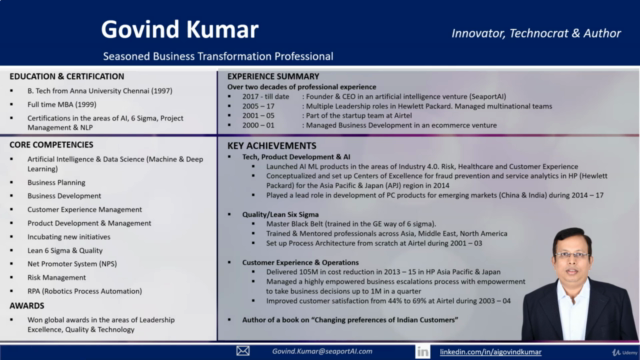Fraud Risk Analytics (Excel & AI based tools) and Prevention

Why take this course?
🔒 Detect & Prevent Fraud Smartly | Assess your company's maturity to manage fraud
Course Instructor: SeaportAi
📚 Course Title: Fraud Risk Analytics (Excel & AI based tools) and Prevention
🚀 Key Takeaways from the Course 🚀
-
Understanding Fraud: Learn about the various types of fraud and their characteristics.
-
Fraud Detection Techniques: Gain insights into methodologies to detect fraud within your organization.
-
Fraud Prevention Strategies: Discover proactive measures to prevent potential fraud scenarios.
-
Data Analysis with Excel: Master the use of excel for detecting anomalies and performing initial data analysis.
-
AI-Driven Analytics: Explore advanced tools powered by AI, such as Benford Law, to uncover hidden patterns and red flags.
-
Visual Data Representation: Utilize box plots and other visualization techniques to spot outliers that may indicate fraudulent activities.
-
Automated Fraud Detection: Learn how to set up programmatic fraud detection systems using AutoML in PowerBI, a No Code Machine Learning solution.
-
Explainable AI (XAI): Understand the drivers behind fraud through the lens of Explainable AI, making it easier to pinpoint and address the root causes.
-
Fraud Management Best Practices: Absorb industry best practices for managing and reducing the risk of fraud effectively.
-
Maturity Assessment Framework: Implement a robust framework to evaluate your organization's readiness and response capabilities against fraud.
📊 Practical Application & Real-World Relevance 🌐
-
Excel Mastery: Walk through practical examples of applying detection techniques within Excel to get a handle on the basics.
-
AI Integration: Discover how to integrate AI tools into your fraud detection arsenal, enhancing your analytical capabilities and providing deeper insights.
-
Assess & Evolve: Utilize the provided maturity assessment framework to evaluate and improve your company's approach to managing fraud risk.
Enroll in this course today to equip yourself with the knowledge and skills necessary to detect, understand, and prevent fraud effectively. Secure your organization's future by mastering Fraud Risk Analytics with Excel & AI based tools. Let's join forces against financial fraud and protect our collective bottom line! 🛡️💪
Course Gallery




Loading charts...
Comidoc Review
Our Verdict
Fraud Risk Analytics (Excel & AI based tools) and Prevention is an informative course that introduces learners to various theoretical frameworks, tools, and real-world applications for detecting and preventing fraud. While it could benefit from deeper exploration of certain topics and more interactions to boost engagement, its strong suit lies in its ability to explain nuanced topics in a clear, structured manner that leaves students with a solid foundation in the field.
What We Liked
- Comprehensive coverage of fraud detection and prevention, including theoretical frameworks like the Fraud Triangle and Benford's Law
- Explains the application of various tools such as Excel, PowerBI, and AI-based techniques for identifying anomalies and detecting fraud
- Lots of charts, diagrams, and real-world examples enrich the learning experience
- Well-structured and clear presentation style, allowing for an easy understanding of complex topics
Potential Drawbacks
- Absence of interactive elements like quizzes or opportunities for discussion hurts engagement
- Lacks depth in some areas, particularly the Python programming basics section which some learners found overwhelming
- Some sections could benefit from more practical examples and application of theories to real-world fraud detection scenarios
- Occasional issues with audio quality and repetitiveness detract from the overall learning experience